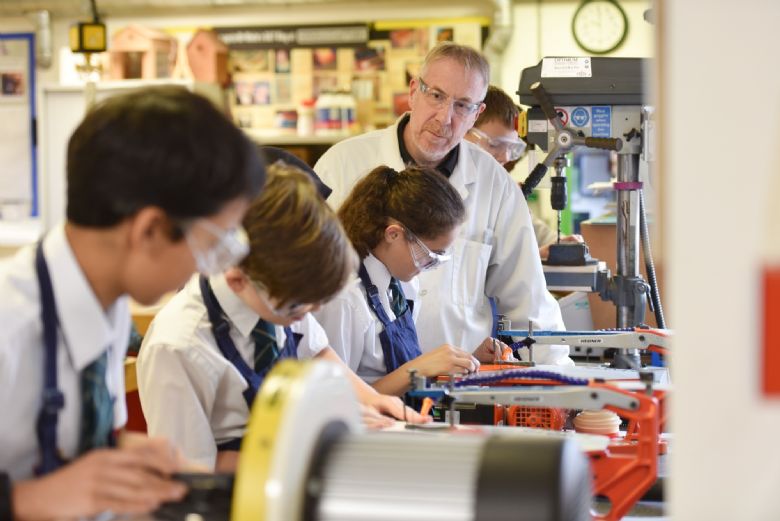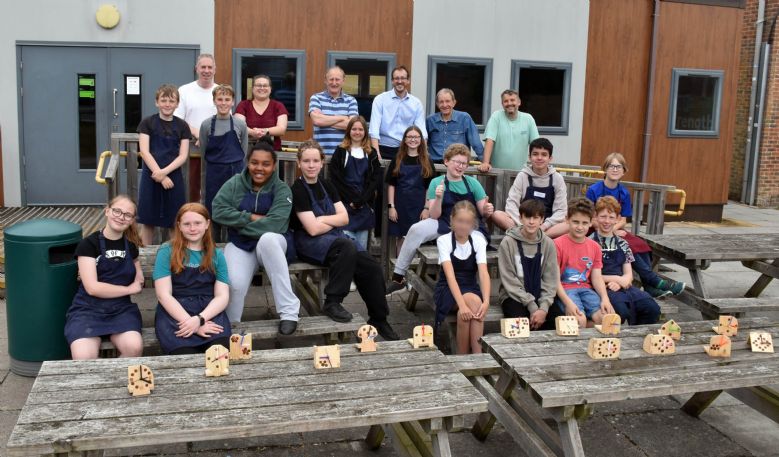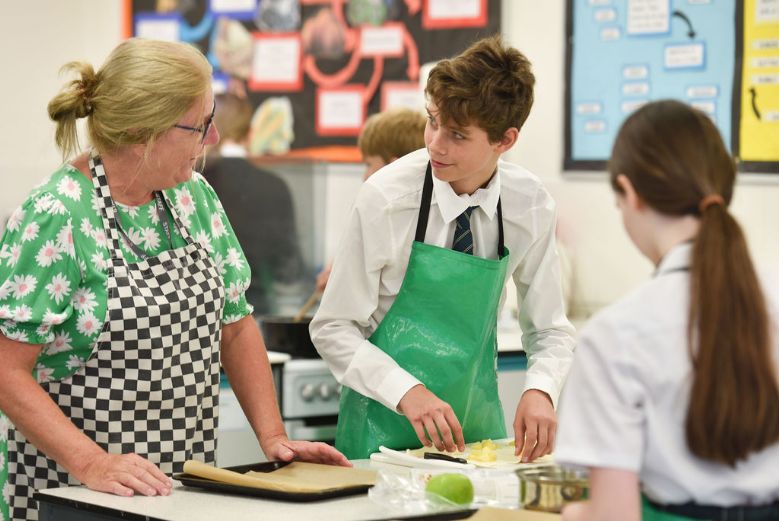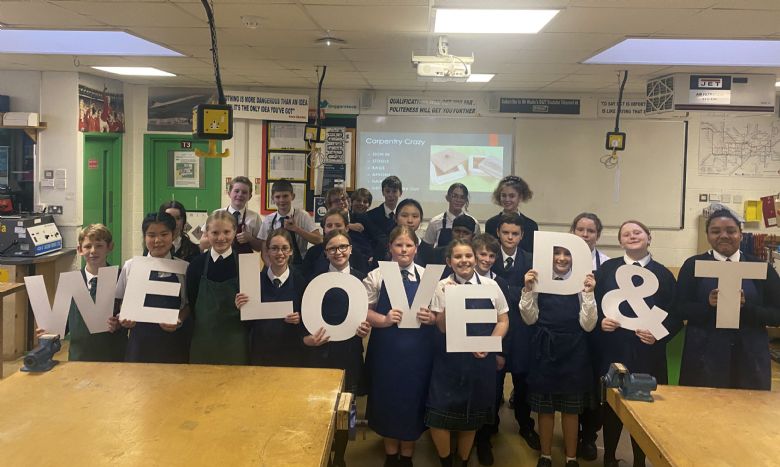Welcome to the Design & Technology and Food & Nutrition Department
|
|
|
|
|
|
|
What is Design & Technology (D&T) and why is it important?
Design and Technology is a creative subject that combines intellectual and practical skills through purposeful practical activities. Students at Eggar’s will respond to a need by developing a range of ideas to be applied in the manufacture of products and systems. They will also gain an understanding of aesthetics, social and environmental issues, industrial practices and how things work, and will develop a range of communication skills, including verbal and graphical expression and modelling. Through evaluation and reflection, they will become informed and discriminating product users.

What do students learn in Design & Technology?
In Key Stage 3, students follow a curriculum that is rigorous and varied. They will undertake project work in the following:
|
|
|
|
At the end of year 8, they can opt for Design & Technology and/or Foot Preparation and Nutrition. Both courses are GCSE. The Design & Technology GCSE will have an ‘area of challenge’ which will enable students to focus on a particular material area.
In KS4 Design & Technology, students study core technical and designing and making principles, including a broad range of design processes, materials, techniques and equipment. They will also have the opportunity to study specialist technical principles in greater depth. This will be in either Resistant Materials or Graphics. Basic Textiles and Electronics are to be studied by all and tested through the 'core' section of the exam.
Food Preparation and Nutrition in KS4 is a creative course which focusses on practical cooking skills to ensure students develop a thorough understanding of nutrition, food provenance and the working characteristics of food materials. At its heart, this qualification focusses on nurturing students' practical cookery skills to give them a strong understanding of nutrition.
Challenge and support in Design & Technology / Food & Nutrition
As students embark on their D&T journey, they develop their skills in order to produce high quality designing and making. As students progress through the years, they are challenged through individual creativity and teacher intervention. Projects become more bespoke and by the time they get to Year 11 they are ready to take on the challenge of exploring their own context and developing solutions to a problem. In both D&T and Food, the work is differentiated to all levels of ability, offering challenges to all. Our technicians work alongside students in all classes to give a helping hand where needed.
How is Design & Technology assessed?
In Key Stage 3, each project is assessed out of 100 marks. Every project is designed to develop a broad range of skills, including creativity, problem-solving, practical ability, and written communication. As part of the assessment process, we evaluate both the technical quality of students’ work and their understanding of key concepts.
In addition to assessing subject-specific skills, we also allocate marks for engagement and effort. This ensures that students who consistently try their best and demonstrate a positive attitude towards learning are recognised and rewarded.
Practical and written elements are given equal weighting, reflecting the balance between hands-on learning and the ability to communicate ideas effectively. This approach not only supports the development of a well-rounded skill set but also prepares students for Key Stage 4, where a similar balance of practical and written assessment is used.
By maintaining consistency between Key Stages 3 and 4, students are able to build confidence in both aspects of their learning and develop the habits, resilience, and reflective skills needed for continued success.
Learning beyond the classroom
Each year the D&T department will endeavour to organise outside speakers to deliver lectures on future paths beyond Eggar’s. This includes talks on engineering, architecture and product design. Each year the department supports and helps budding engineers apply for the prestigious Arkwright Engineering Scholarship. The department runs many extracurricular activities, such as woodwork club and electronics. Our young engineers annually enter a powerboat challenge with huge success. We run an annual weekend woodwork master class with our Aspire Programme (MAT)students.

Where can Design & Technology lead
As well as providing you with skills for life, Design & Technology can lead to a number of varied and interesting careers.
Manufacturing and Construction: These include, Mechanical engineers, Production Engineers, Industrial Engineers, Civil Engineers, Manufacturing managers, Production Workers. Mechanical technicians, Tool makers, Model Makers, Quality Control managers, Welders, Fabricators, Non-destructive testers, Mechanics, Builders, Architects, Surveyors, Plumbers, Electricians and Carpenters
Art & Design: These include Artists, Graphic Designers, Craft Designers, Motion Graphic Designers, Interior Designers, Animators, Illustrators, Art Auctioneers, Gallery & Museum Curators and Front-End Designers (websites etc.).
IT & the Internet: These Games Developer, Computer Based Design (CAD), CAD/CAM Engineer, Product Modeller, Software Programmer, Network Engineer, Web Designer.
Fashion & Beauty: These include Fashion Designers, Beauty Therapists, Dressmakers, Cosmetic Chemists, Hairdressers, Make-Up Artists, Fashion Photographers, Models, Spa Therapists and Fashion Journalists.
Where can Food & Nutrition lead
Food and Nutrition is a subject which can be used throughout your adult life. Following the successful completion of GCSE Food and Nutrition, students could continue their training by opting for Level 2 or T levels in Hospitality and Catering at College or Sixth Form. This helps to build on what they have learnt and is a stepping-stone to a catering apprenticeship or work-based training which can help you specialise in a particular area or in general hospitality and catering.
There is a chronic shortage of professionals in the Food Industry and, combined with further academic study, this course can also lead to careers such as food technologist, scientist, product developer, buyer, dietician or marketer.



